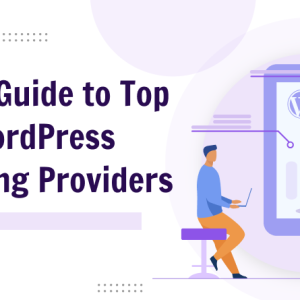Remote working is the best way to work these days. After the COVID 19 pandemic, people prefer to work from remote locations than from offices as they are not safe anymore. So, what are the challenges that employers face while preparing for recruitment processes? Remote hiring is not the same as regular hiring. There are many differences that you need to keep in mind. As you are hiring for a remote location, you need to be sure that you are prepared to face the consequences of remote work culture.
But before going into detail about how to adapt to the remote hiring process, you need to ask yourself one question. Why do you want to consider remote hiring? Answering this question will help you lay down the different guidelines and rules for your future employees.
Why do you need remote hiring?
You need to consider remote hiring because of the following reasons:
It will increase your productivity in many ways. It is not always possible to meet the office or hold regular meetings. Working from remote spaces can give you the liberty to hold meetings whenever you want. Your employees will be more comfortable while working at home than from offices. As a result, they will be enthusiastic about working and will give better results.
It will improve the health of your workers. Working from remote locations has a positive impact on the health of workers as they are happy and satisfied. It will lead to more productivity for your company, and you will see positive results within a few days. The wellbeing of your employees is of utmost importance as they are the ones who drive the workforce of your company. So, if they stay happy and content, your company will reap the benefits.
You can reduce costs. Working from home or from remote places reduces the cost significantly. You don’t need extensive hardware to run your offices. You only need to invest in software and tools. As a result, you will be able to save a lot of money. Thus, if you are planning to reduce costs and increase profits, working from remote places is the best option.
You can hire talent from all over the world. Remote workspaces have a diversified pool of workers. As you don’t need your employees to come to the office, you can hire the best talent from all over the world. It will increase your productivity and lead to more creativity.
It will simplify your process of doing business in multiple time zones. Working from different time zones is difficult to manage. But, if you have remote workplaces, you can achieve it easily. Your employees will find it easier to collaborate with the rest of the team. Thus, you can work in a better and positive way. If you are a new company, remote hiring will help you increase your profits within a short time.
Top 5 ways how employers can adapt to the remote hiring process
1. Be careful about promotional activities
Conventional jobs require great marketing strategies. But, with remote hiring, the case is completely different. With traditional jobs, you can advertise using hyperboles and decorative words. But, if you are hiring remote employees, you need to be precise and clear. Highlight the job requirements properly and make sure to use the right keywords. Using the wrong keywords or no keywords at all will not generate many applications. Remember that you need to have a lot of applications so that you can choose the right talent from the pool. If you don’t advertise properly, you will have trouble training people and making them prepared for remote jobs.
2. Create a remote working culture
A great company is what its culture is. Working culture has immense importance in today’s world, and you cannot move forward if you don’t have a proper work culture in place. Before hiring recruits, devise a work culture that your entire team will follow. If you do this in advance, you will have no problem while training fresh recruits. Giving fresh recruits a fair idea of your work culture will help them understand your work process and also take your company forward.
3. Involve the entire team
Many people make the mistake of giving partial importance to certain employees. Your job as a remote employer is to pay attention to all your human resources. It can take you significantly longer to resume working with your new employees. While conventional jobs require a few weeks of training, remote working jobs need complete months. Therefore, you need to involve the entire team and move forward as a group. Leaving even one employee behind can have serious consequences.
4. Prepare for the long term.
Your goal should be to prepare for the long haul. Always think about the future and what you want to do for the future of your company. Teach your staff how to manage to work from remote conditions. Train them in different communication styles and check them for alertness. Don’t compromise on the quality of training in order to finish the process faster. It will take some time, but at the end of the day, you will have a team of dedicated workers who would be able to work efficiently from any remote location. Offer experimental days to check how they work in real life. Based on that assessment, you can plan ahead.
5. Prepare a set of assessment techniques for the hiring process.
Hiring questions can have a great impact on your recruitment process. Devise a set of questions that will test the level of knowledge and expertise of the candidate. You need to be alert during the hiring process and check whether a candidate has the required skills or not. Prepare an assessment technique in advance that you will use on the interview day. Remote hiring is the future of most companies in the world. If you want to stay ahead of your competitors and earn great revenues, you need to adapt to the remote hiring trend soon.





